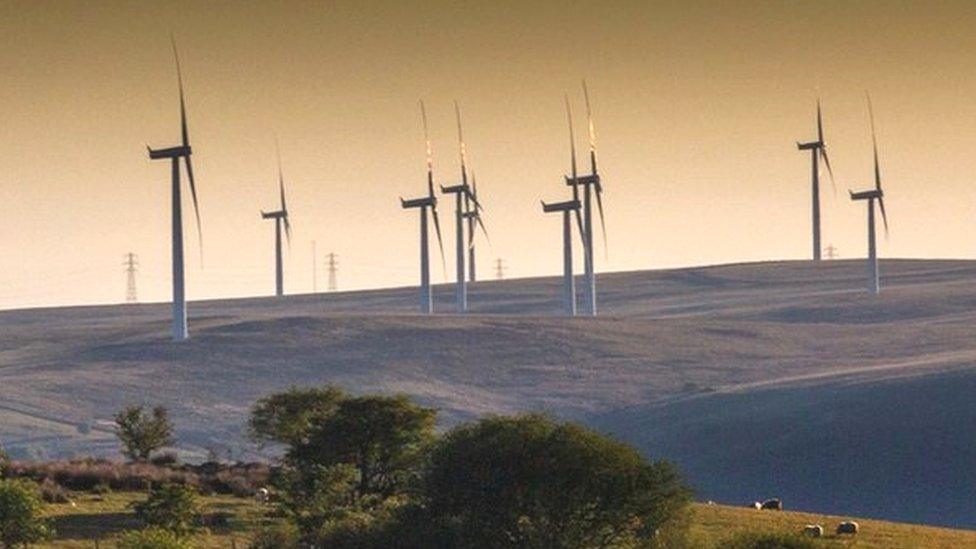Most homes will need heat pumps, Welsh government says
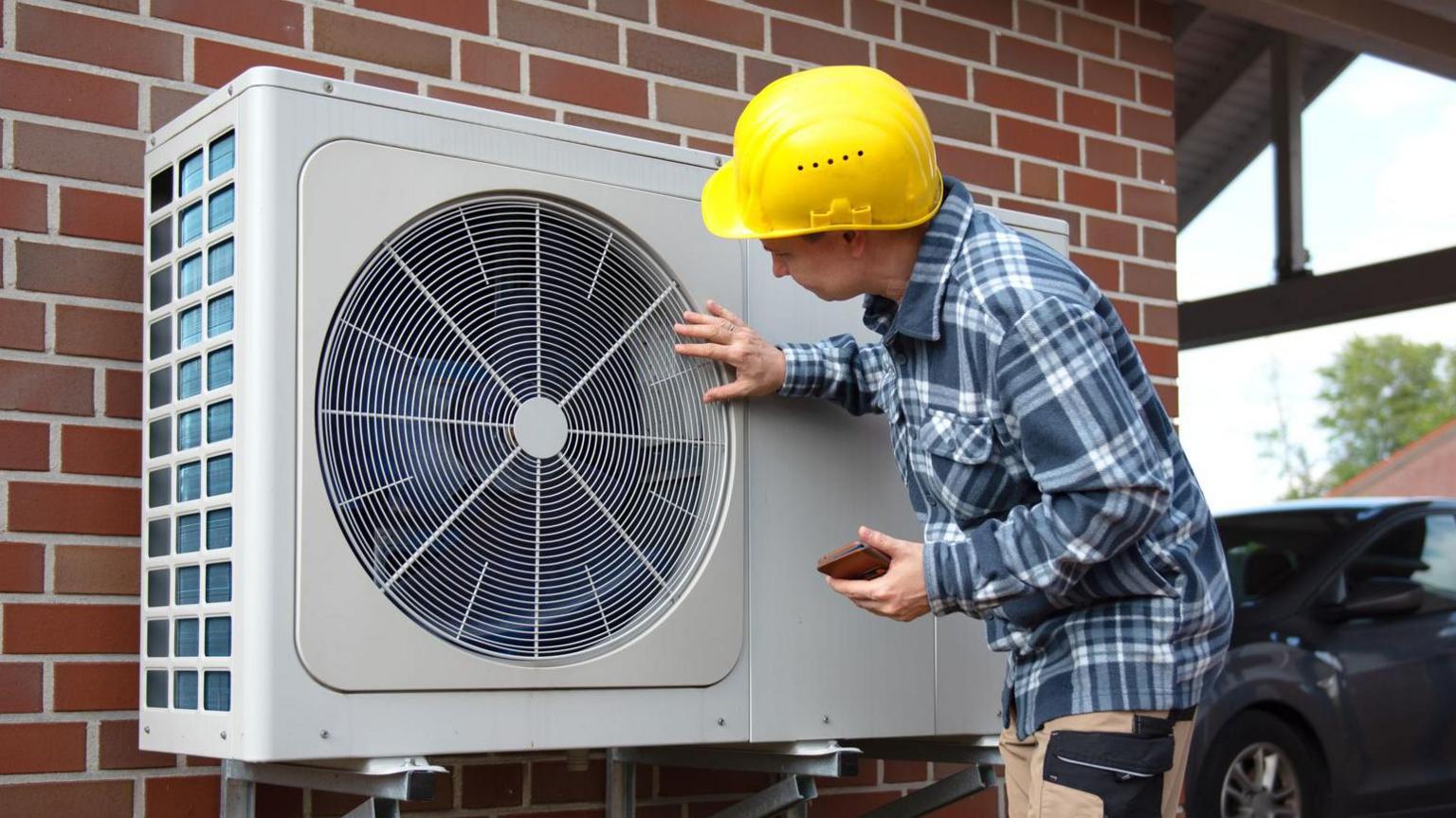
The use of heat pumps are central in the Welsh government's plan to reach net-zero emissions by 2050
- Published
Heat pumps will need to be installed in the vast majority of Welsh homes to meet climate targets, the Welsh government has said.
However, the government's new heat strategy stops short of saying if or when oil and gas boilers will be banned, acknowledging the switch was still "beyond the means" of many.
It said it would focus on making it easier to opt for the greener tech with financial incentives and changes to planning rules, among other things.
Heating accounts for 50% of energy use in Wales, 75% of which is generated by burning oil and gas, releasing planet-warming carbon emissions.
Wales falling behind on climate targets - report
- Published6 June 2023
Four times more wind power needed to hit net zero
- Published7 November 2023
Ministers say they are unlikely to support the use of hydrogen as an alternative fuel for heating homes, though they say it will have an important role in and around industrial sites.
The announcement is seen as significant because it is about choosing a particular route towards achieving low-carbon heating.
What are heat pumps?
Heat pumps run on electricity instead of gas.
As the UK increases its production of electricity from renewable sources like the wind and sun, it is hoped that they will play a big part in cutting emissions.
Heat pumps warm buildings by absorbing heat from the air, ground, or water.
Air-source pumps, for example, suck in outdoor air and pass it over tubes containing refrigerant fluids to produce heat.
On average, they cost £10,000 more than a gas boiler to install, according to the National Infrastructure Commission, but costs are falling all the time.
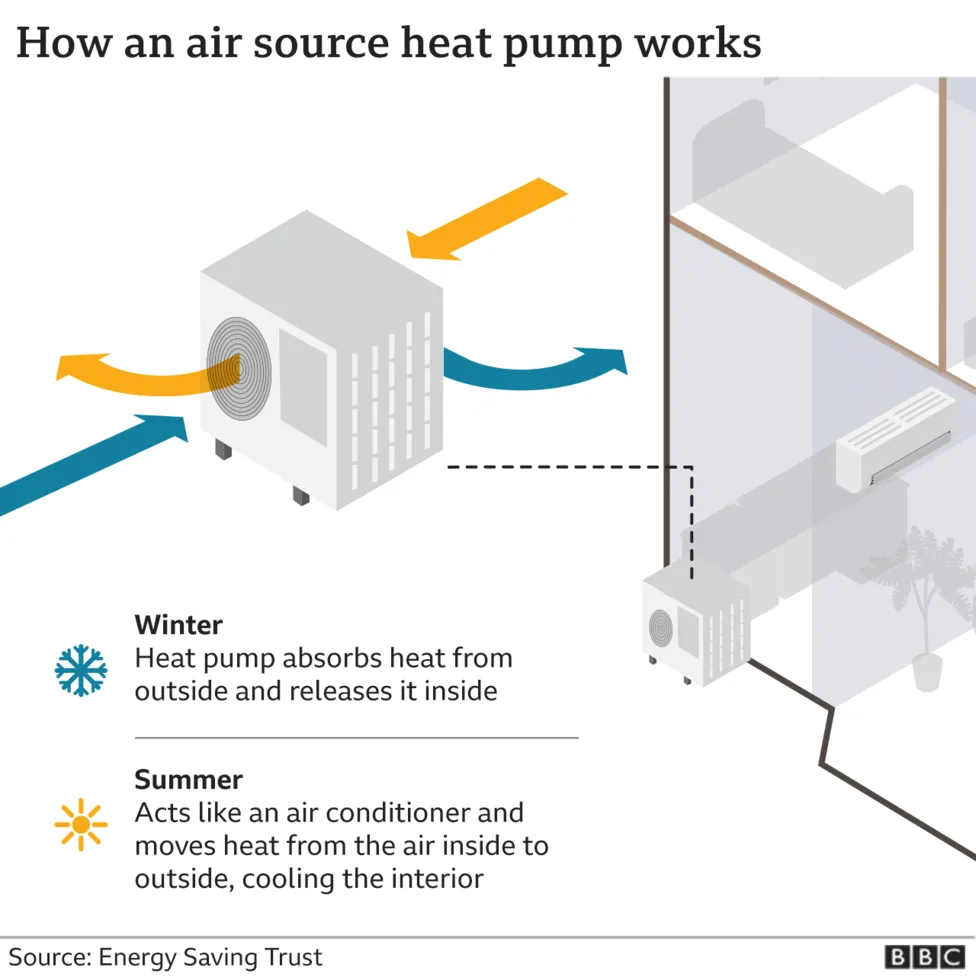
Wales, like the UK, is working towards a legally binding net-zero emissions target by 2050, to stop contributing to climate change.
An estimated 15,000 heat pumps have already been installed across Wales - the Welsh government wants this to rise to 580,000 by 2035.
Respondents to a consultation ahead of the launch of its plans warned lack of awareness among the public about them, as well as the costs and practicalities involved were major barriers.
The strategy proposes a review of planning rules to make it more straightforward to have a heat pump put in, as well as public awareness campaigns.
UK government grants, offering £7,500 off the cost of installing a heat pump are already available, but the Welsh government said it would "identify financial and other forms of support needed", particularly for poorer households.
It is hoped the clear focus on heat pumps will also give confidence to businesses, triggering investment in manufacturing, skills and training.
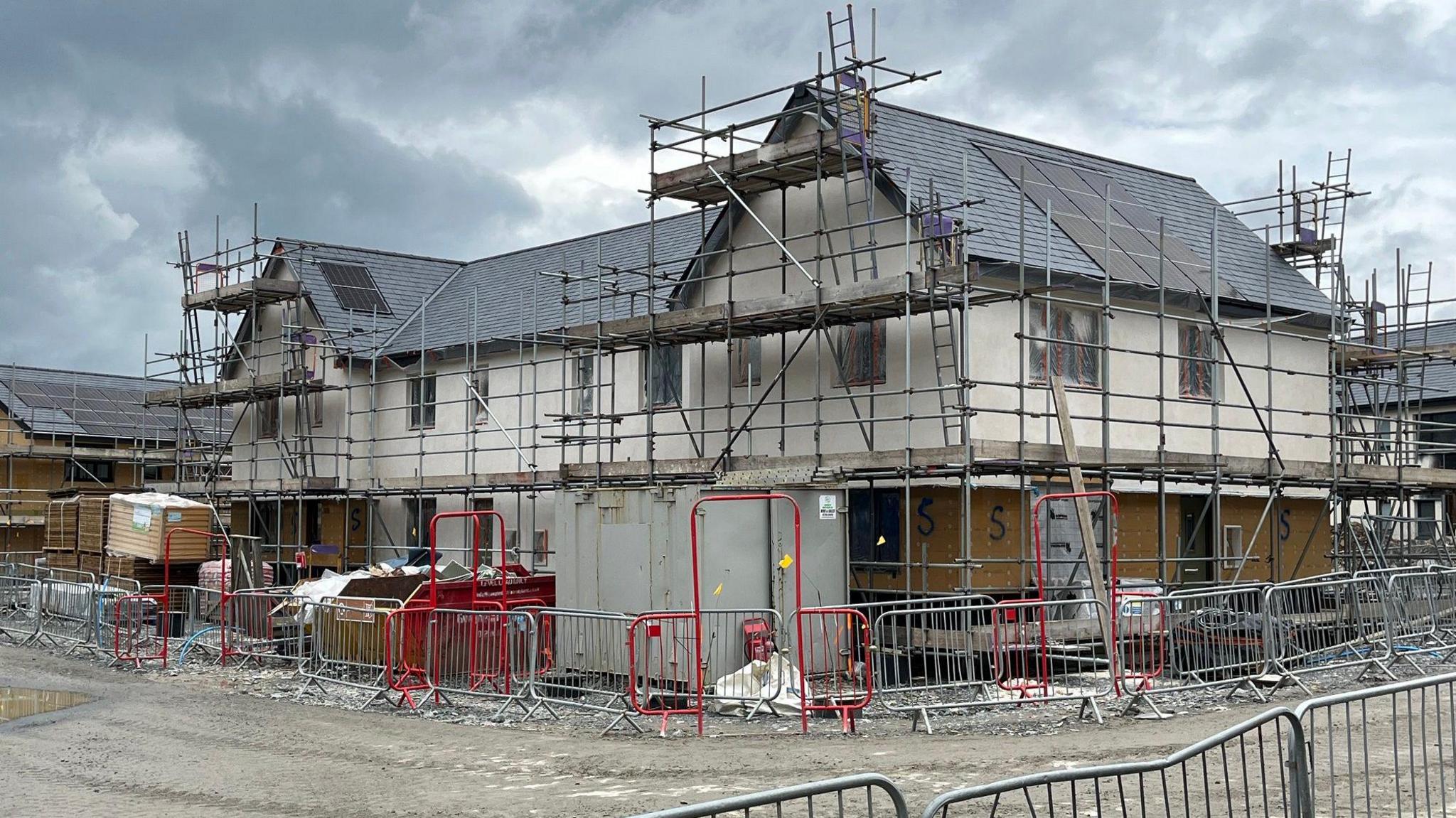
In Penrhyndeudraeth, Gwynedd, 41 new affordable homes that meet the highest energy efficiency standards are being built
In Penrhyndeudraeth, Gwynedd, building work has started for 41 new affordable homes.
They are EPC A which means they have the highest energy efficiency rating possible.
The timber frame properties have solar panels with battery storage, high levels of insulation and air source heat pumps.
In the future, the Welsh government wants all new build homes to look like this and it has said it would invest significantly to help retrofit the majority of the country’s existing housing stock.
'Massive challenge'
Arwyn Evans, of housing association Cynefin Group, said: "A home like this could save a tenant up to 50% or more on their bills compared to an average house."
But Mr Evans said the effort to install technology such as heat pumps in older properties was likely to be a much bigger challenge.
"Heat pumps don’t work all the time in existing stock because heat pumps work best in underfloor heating so in existing homes - [it's a] massive challenge. "
He said it would take about £30,000 to £50,000 per property to upgrade existing homes to an EPC A rating.
"You’re talking about billions of pounds," he said.
"It’ll keep people in work and benefit the community if we reinvest in it in the long term.
"But will take a couple of years to get everybody up to speed. We’re getting there but it’s quite slow in doing that."
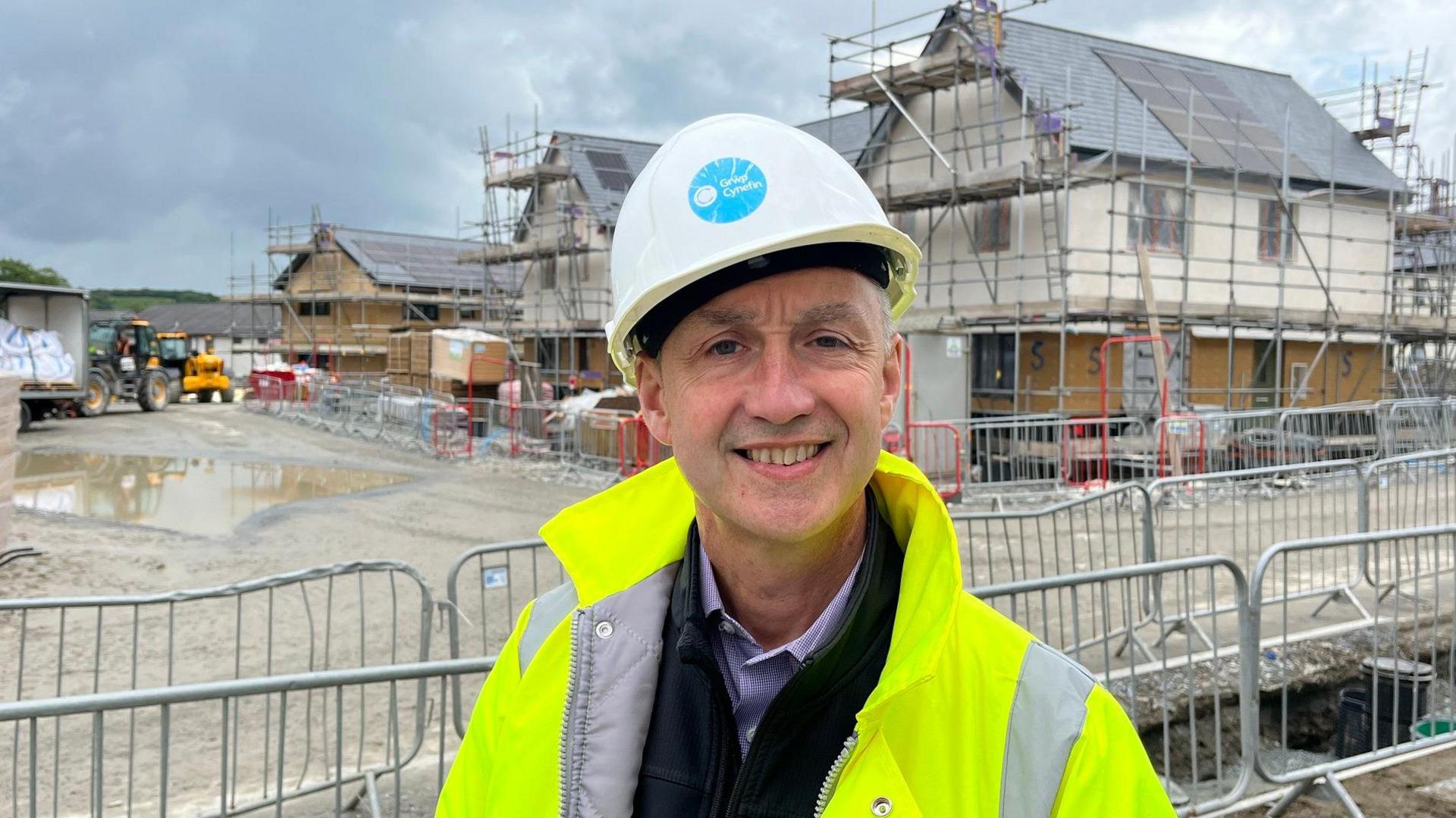
Arwyn Evans says upgrading Wales' existing homes will cost "billions of pounds"
Alongside its heat strategy, the Welsh government has also officially launched a new state-owned renewable energy developer.
Trydan Gwyrdd Cymru, based in Merthyr Tydfil, has been asked to deliver a gigawatt's worth of extra green power capacity in Wales by 2040, enough to meet the needs of more than 860,000 homes.
It will focus predominately on building new onshore windfarms.
BBC Wales has been told five sites are under consideration on Welsh government owned woodland across Wales.
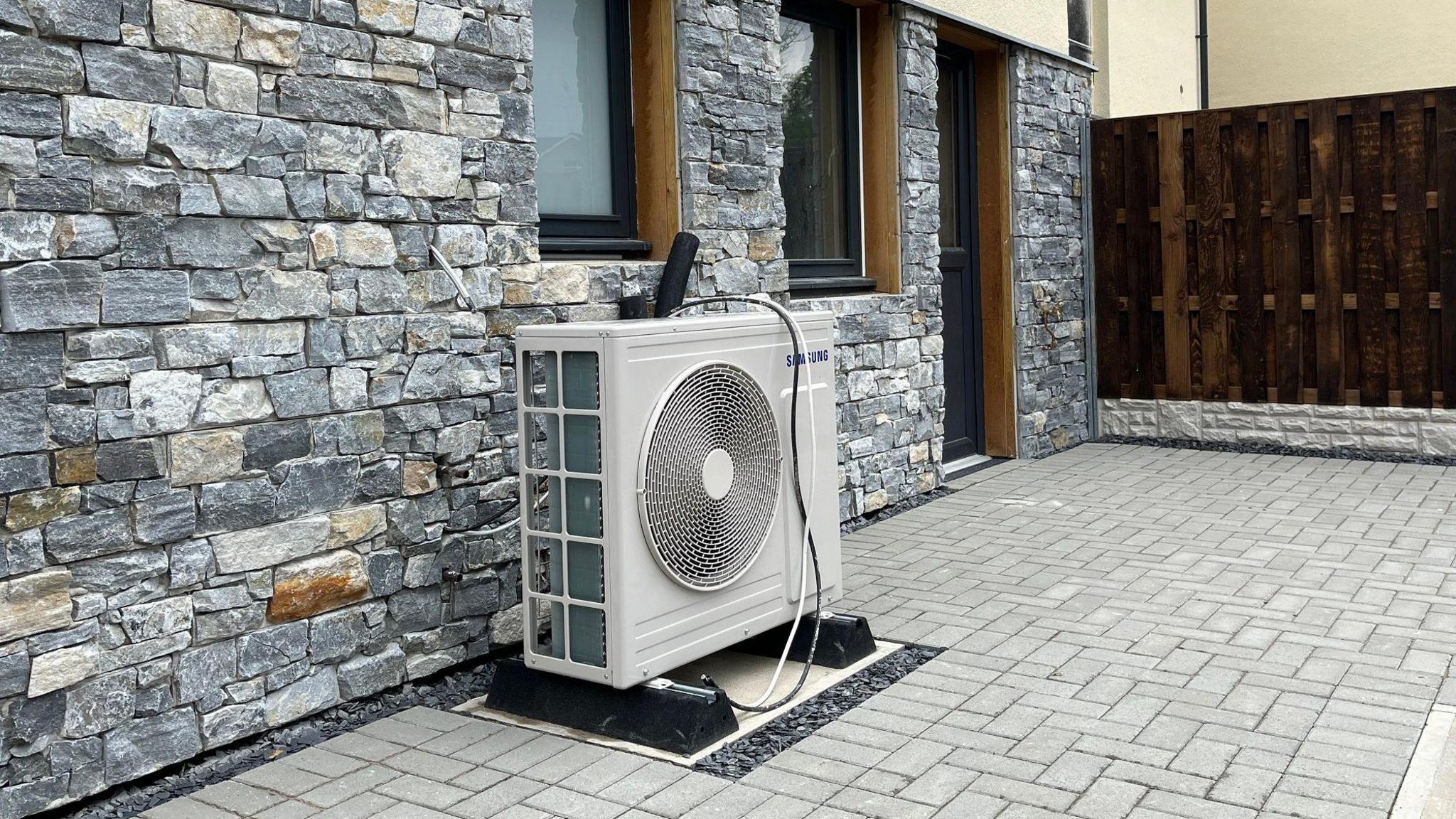
Heat pumps cost, on average, £10,000 more to install than a gas boiler
At the launch of the government's Heat Strategy in Bryncynon, Rhondda Cynon Taf, energy secretary Jeremy Miles said it would lead to "large-scale, Welsh owned" projects.
"There are enormous opportunities here," he said.
He said owning a renewables company on behalf of Wales will give the people of Wales the ability to "own the returns on what will be a significant investment".
Richard Evans, Trydan Gwyrdd Cymru's chief executive, said the firm would be "reaching out to local communities to discuss very early plans associated with priority projects on the Welsh woodland estate".
Related topics
- Published1 June 2023

- Published13 March 2023
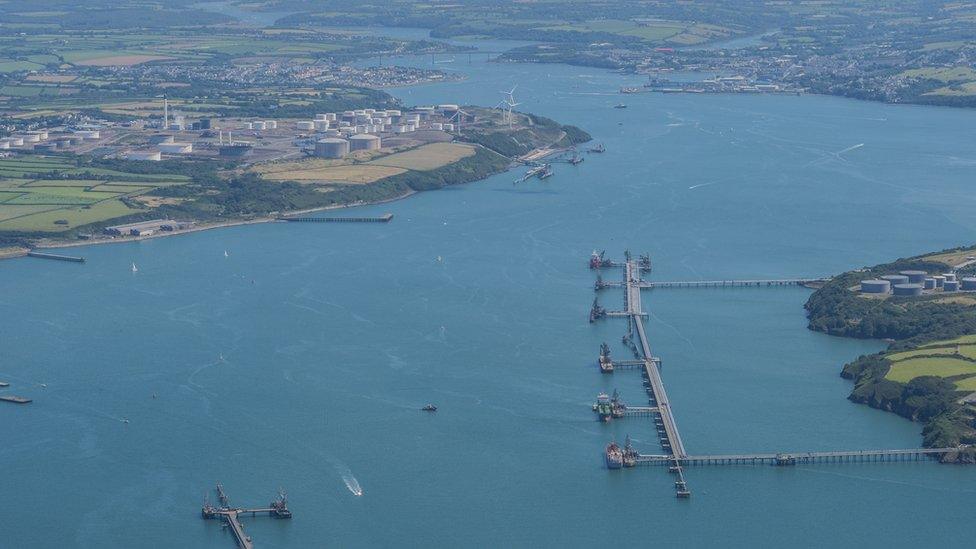
- Published12 August 2023
